I put my hand in the air and flagged down a taxi at the Chengdu International Airport in Sichuan, China. I lugged my large pack into the trunk and slid into the pleather seats. Thus began the same Chinese conversation I’d had hundreds of times before: Where are you from? How did you learn to speak Chinese? Are you a teacher, a missionary, in government? Do you like eating hot pot? Do you like Sichuan spice? I had just arrived to begin my fourth year working in China, but something was different this time. Perhaps it was the fact I’d met a girl back home and stumbled into a career path, both of which could be the real thing. Maybe it was the dreary weather and recurring conversation. Whatever it was, I decided this would be my last stint in China, but I wanted to end with an epic road trip.
I reached out to my buddy Simon who also lived in Chengdu. He told me the all-foreigner soccer team had a game coming up, and I should join. In classic Euro soccer fashion, Simon was smoking a cigarette during warm-ups for the game. Our team wasn’t exactly elite, but rather a mix of foreigners from all over the world with varying soccer skills, most with pot bellies. While we passed the ball back and forth, I explained to Simon that I was planning a big adventure and needed a partner. I knew he was nearing the end of his multi-year contract, and the two of us had adventured together successfully before.
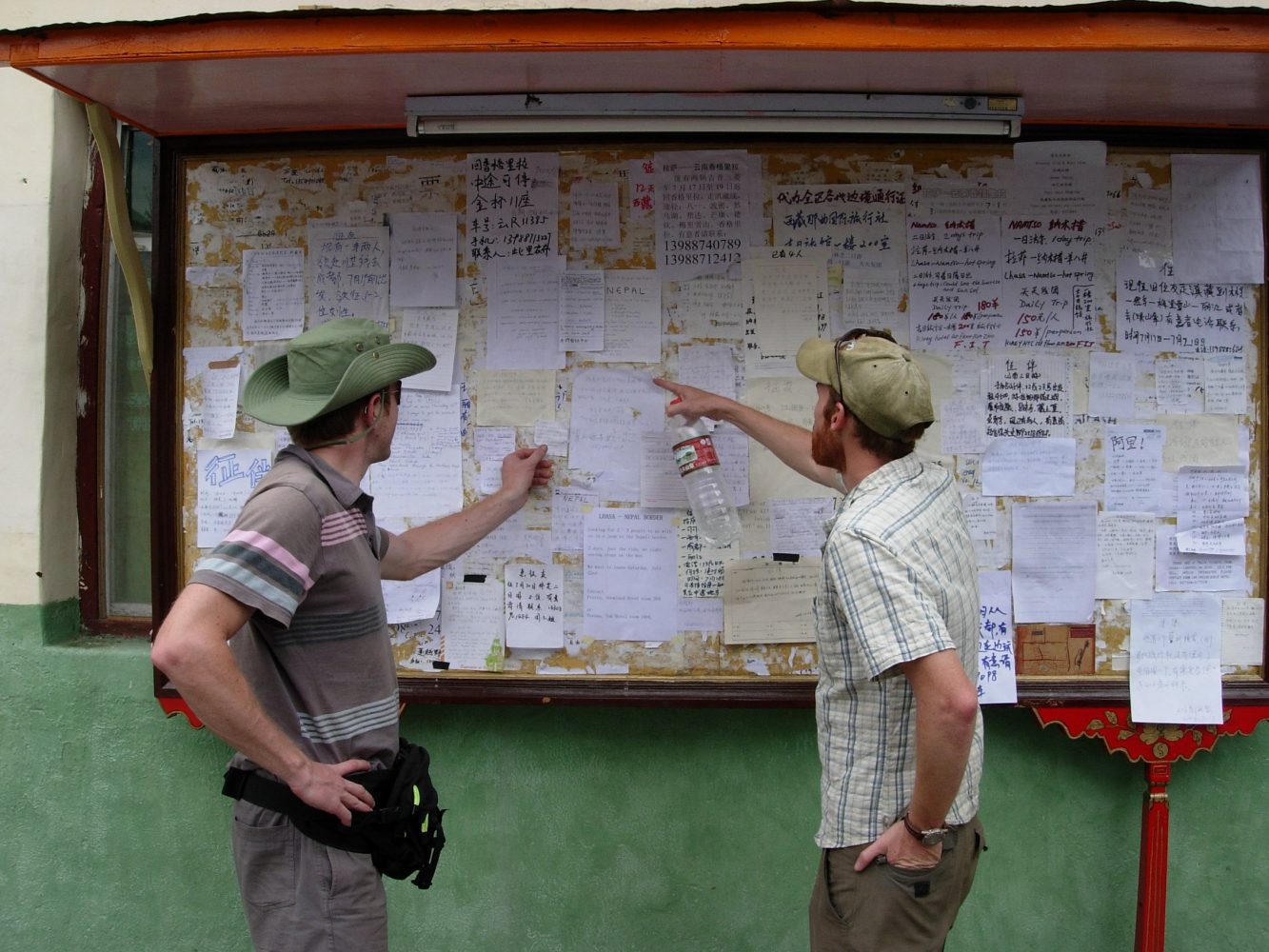
Several weeks later, after tying up our affairs, Simon and I met at a xiao kao (spicy barbecue) restaurant and presented ideas back and forth over a couple of cheap Chinese lagers. I suggested we travel through Xinjiang and road trip through “the Stans” and Eastern Europe, all the way back to London. After finishing our first bottle of beer and spicy skewers, we decided that plan would take too long. Simon pitched driving east, visiting the Chinese provinces we hadn’t yet traveled to. I heard him out, but I’d had my fill of Chinese culture the last few years. Another round of beers and several more inferno spice kebabs showed up at our table. I unfolded a tattered map that showed China, Tibet, Nepal, and India in great detail. I then described some of the Tibetan towns I’d previously encountered and mentioned the Gyantse Horse Festival, which was supposed to be pretty raucous. We looked down at the map in unison, looked up at each other in unison, smiled, clinked beers, and the decision was made. We would navigate overland across Tibet, Nepal, into India, and finish in Bombay.
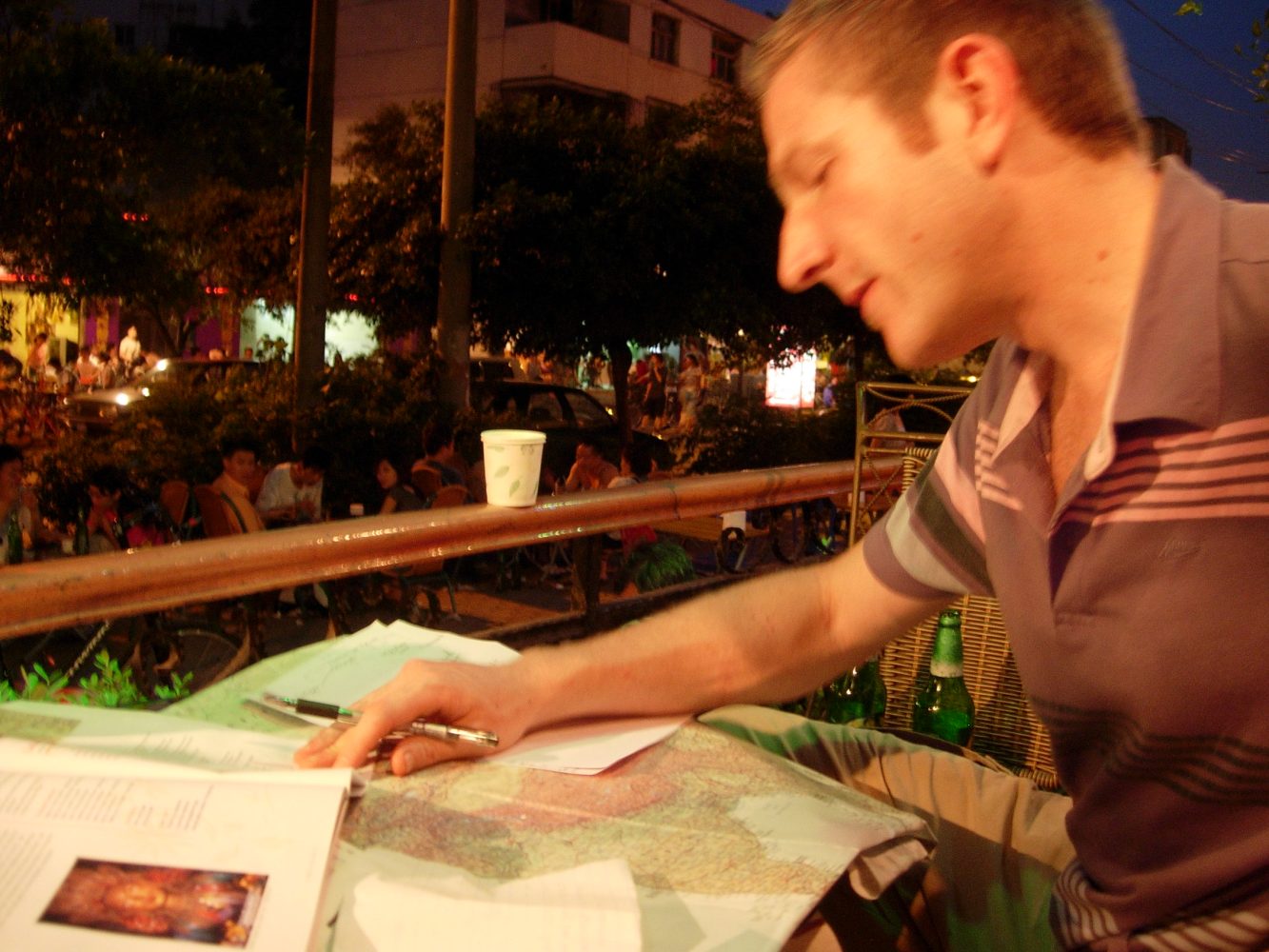
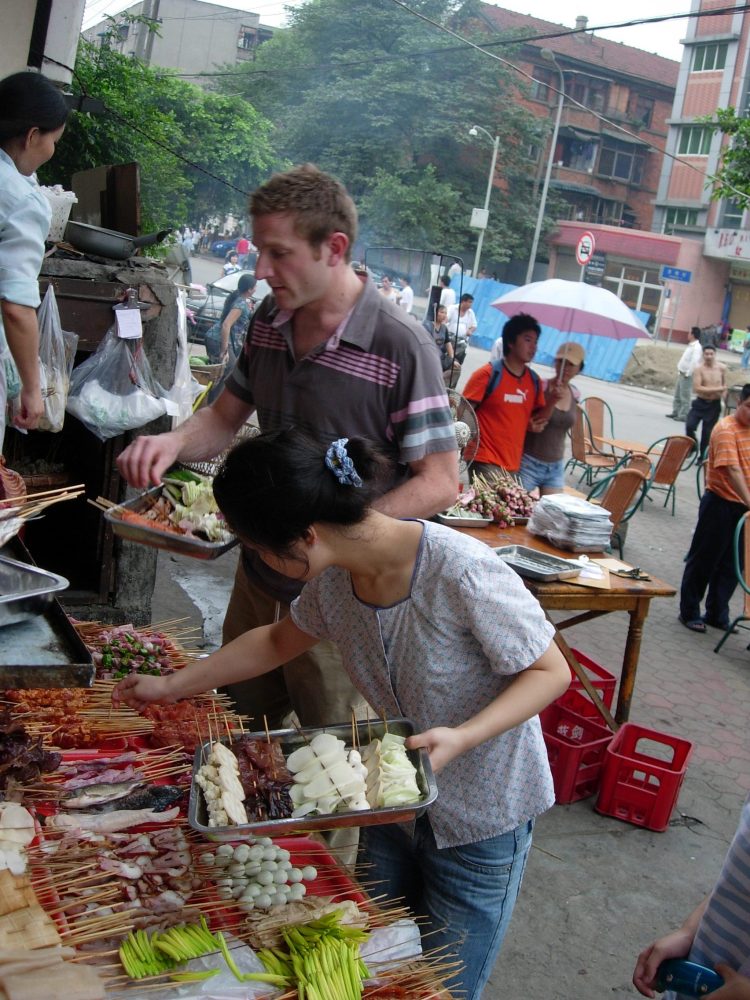

∙∙∙∙∙
We spent several days in Lhasa, Tibet, being tourists and arranging logistics. After asking around, we scored a Toyota Land Cruiser 4500. Though beat up, I knew it would be perfectly capable of getting us through the Tibetan portion of our trip. Hiring this type of vehicle is expensive, and we wanted to find two more travelers to help dilute the cost. We drafted a handwritten note, an advertisement really, that succinctly described our timeline and route and implored people to find us in our guesthouse if they were interested. We tacked these handwritten notes up at several busy traveler cafes along the Barkhor in Lhasa.
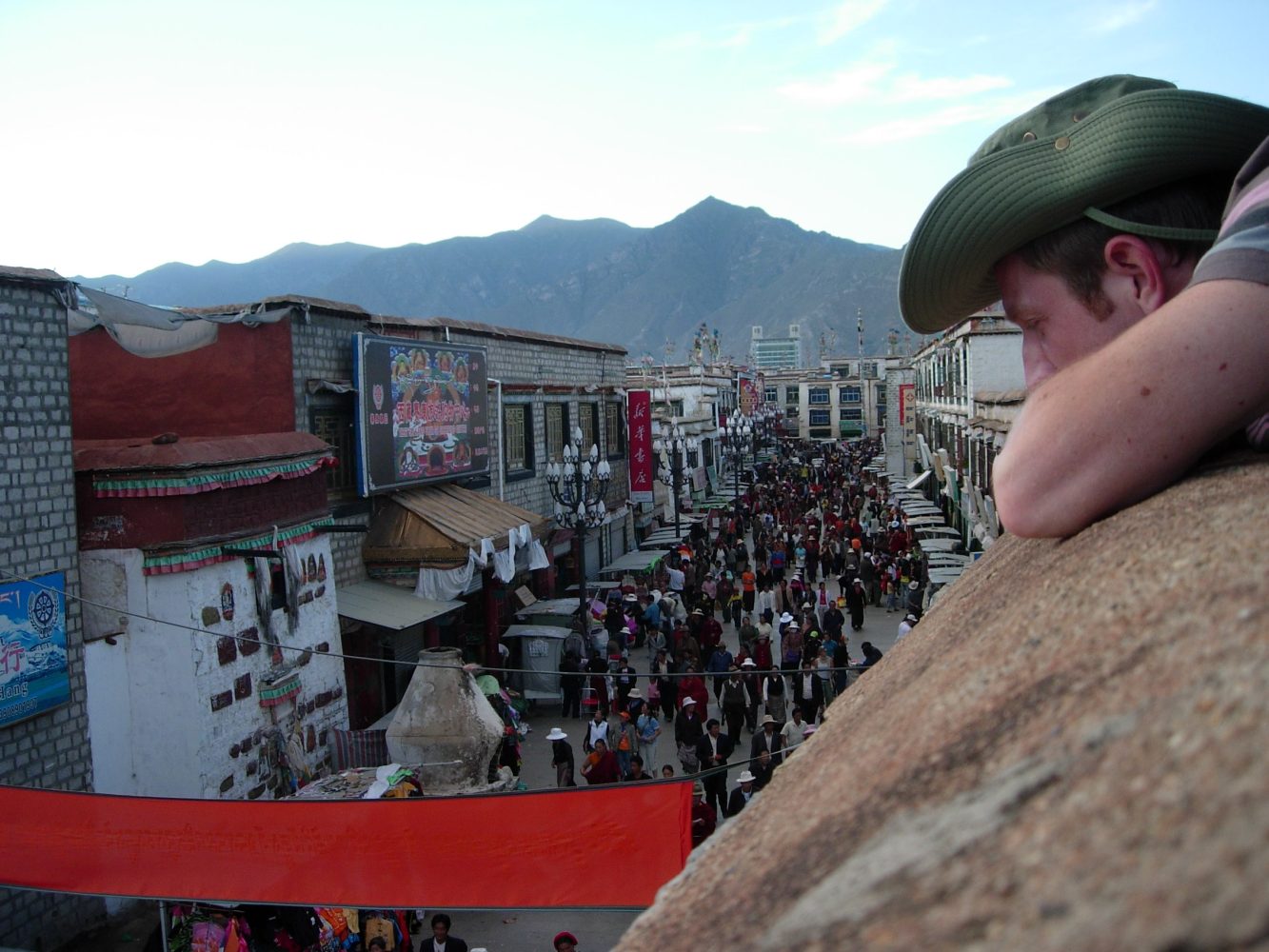
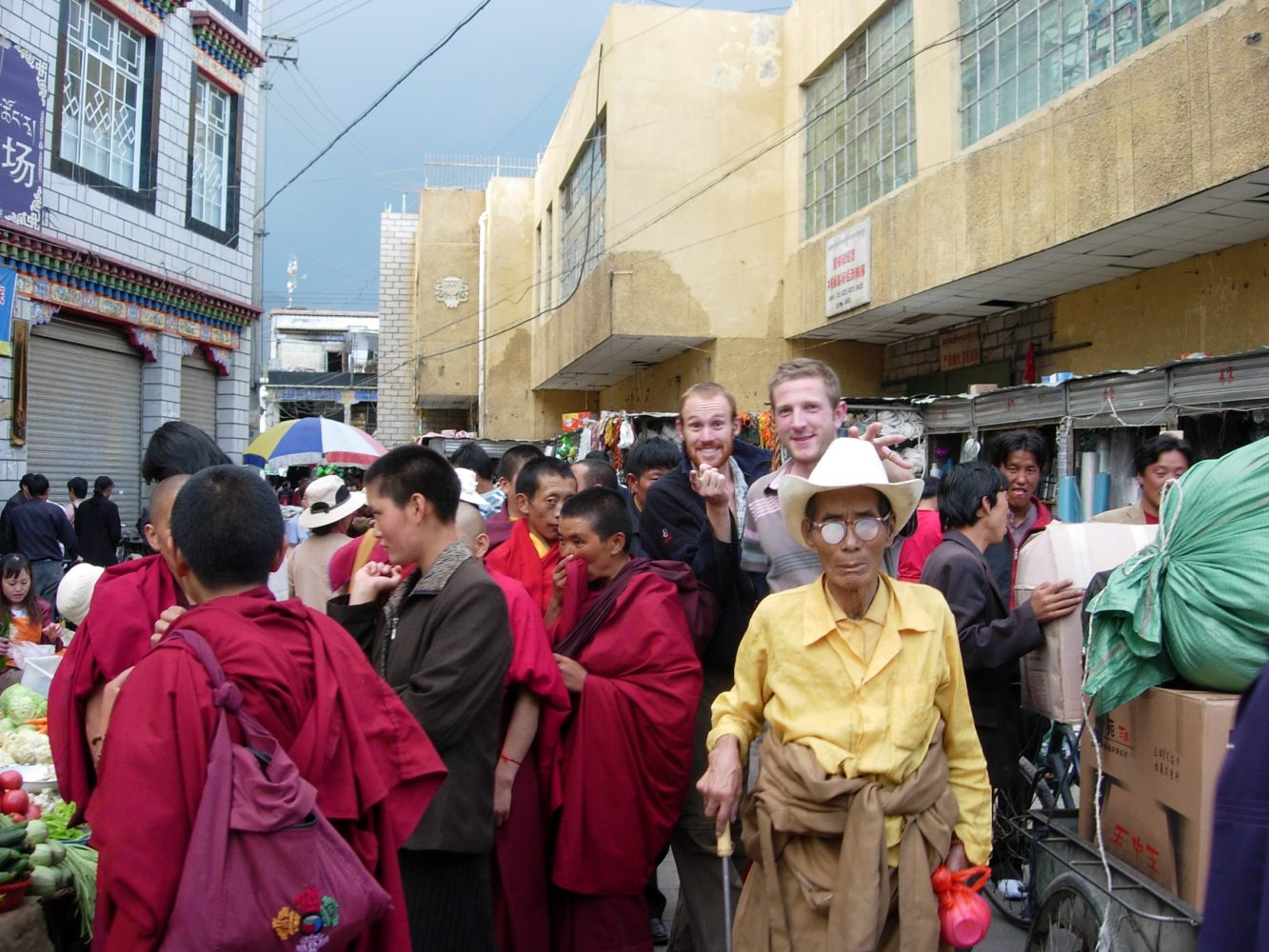
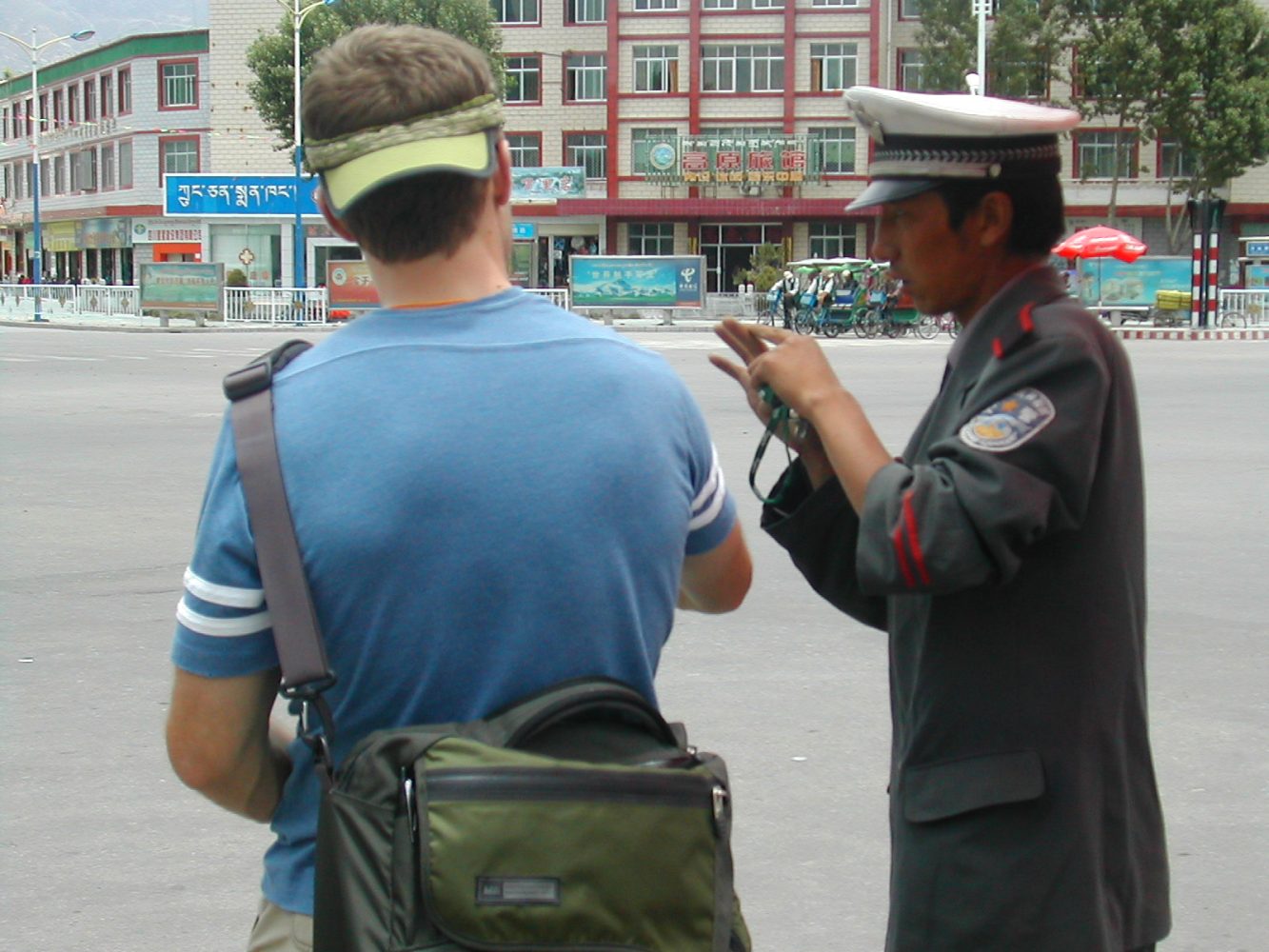
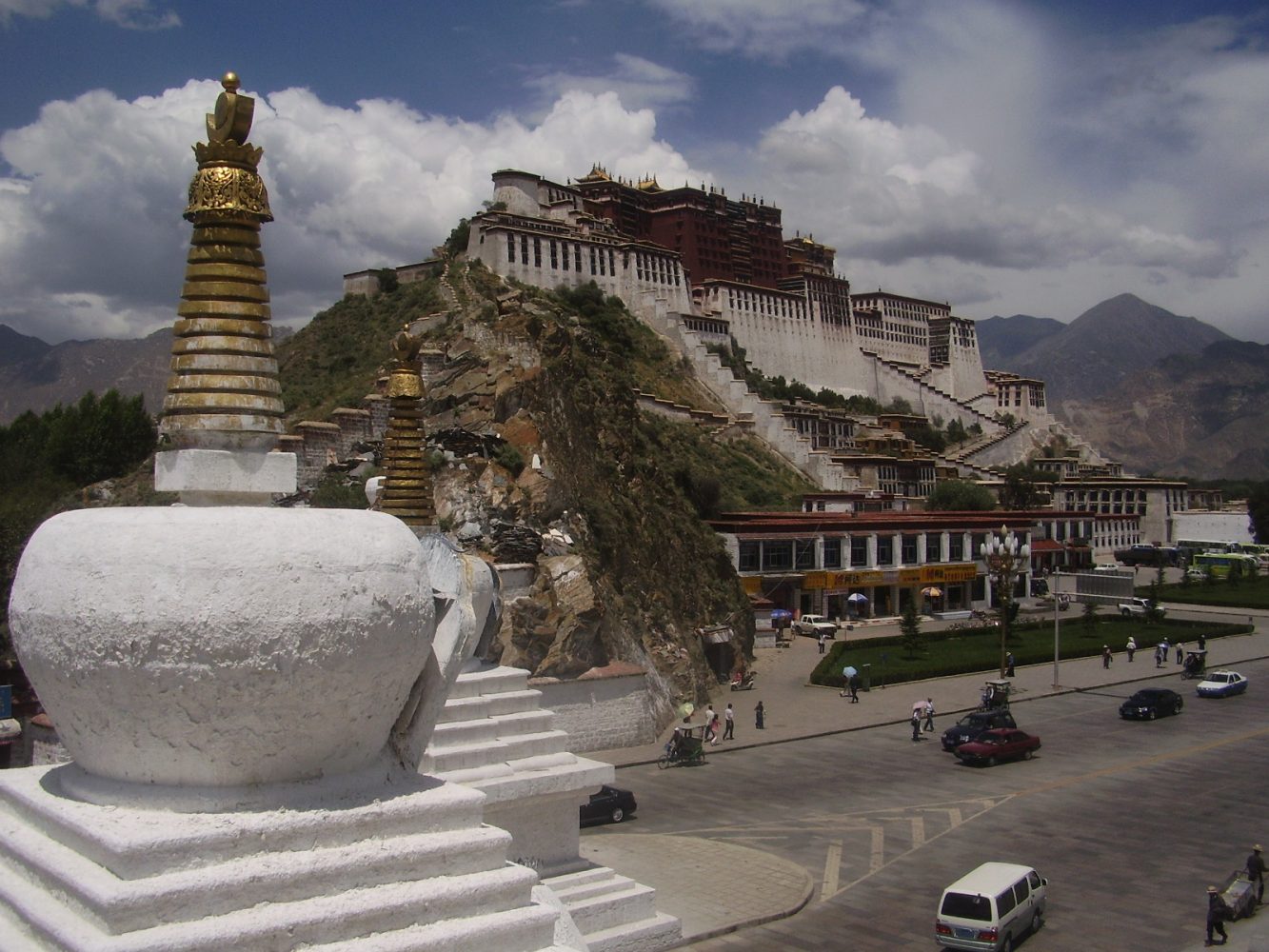
Our first knock on the door came a few hours later. It was a match made in heaven: Aussie Scott, we called him. The three of us hit off immediately and realized we might all be the same dude aside from being raised on separate continents. We got to know each other on the rooftop of the Makye Ame Café while watching the sun set on downtown Lhasa. Masala tea eventually gave way to cheap beer as we solidified our new friendship. We still needed a person to fill the final seat in the Land Cruiser to help extend our meager budgets a bit further. No knock came that night.
The next morning, a wee bit early for my liking, there was a faint knock on the door. I answered with bleary eyes, wearing only my boxer shorts. She introduced herself as Elena, a Slovenian woman who was hoping we hadn’t left on our trip yet. She had a nice smile, kept her eyes down in a sheepish way, and gave me a firm handshake. We all got breakfast together to assess if we were like-minded travelers. Elena had been backpacking Asia by herself for several months and could clearly hold her own—she certainly wouldn’t slow us down. The question was if she could put up with three hooligans for the duration of the trip. Alas, our foursome was formed; we would depart early the following day.
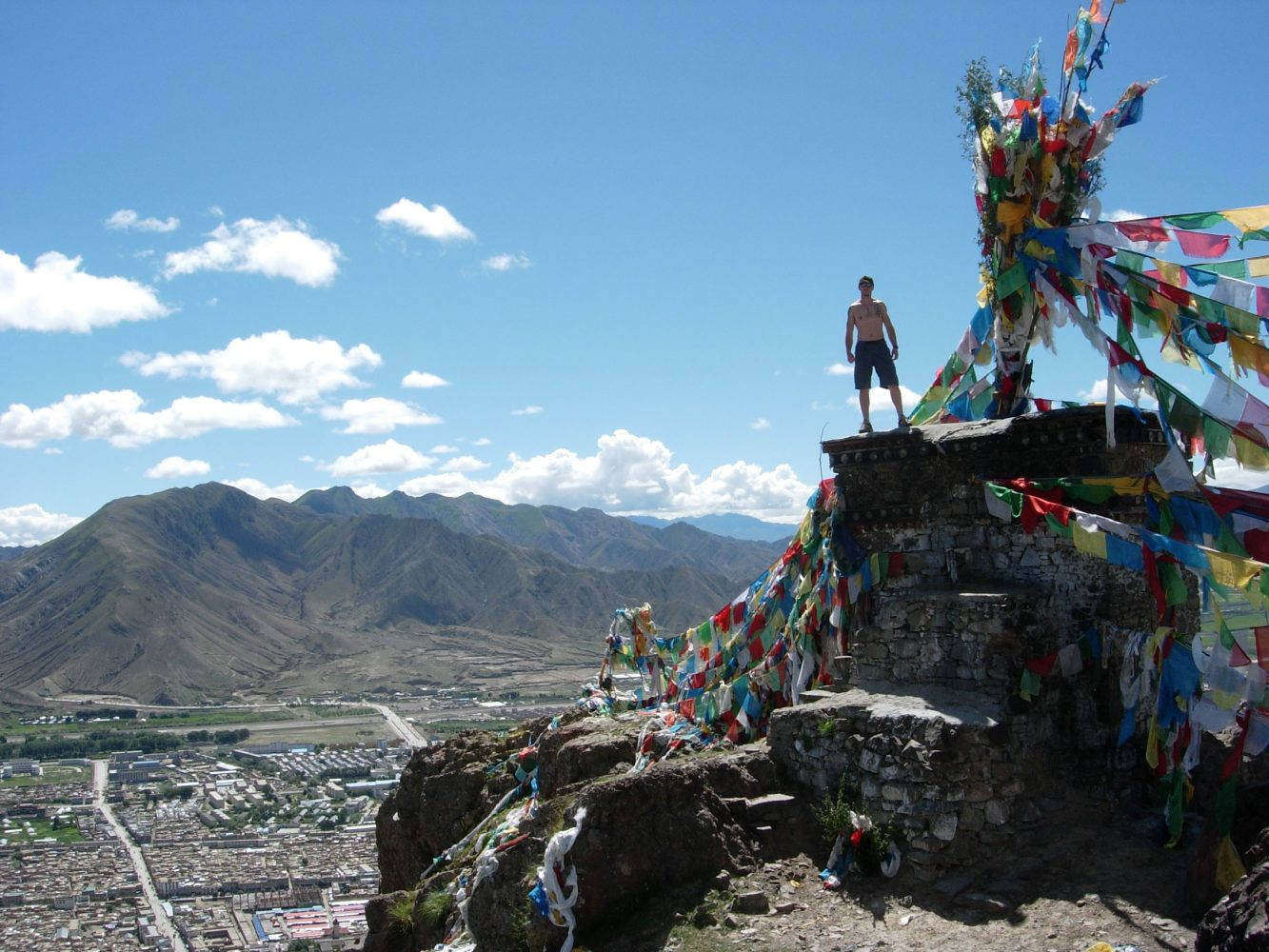
Gyantse Horse Festival
I’d been living, working, and traveling in Asia for the last few years and had experienced some pretty amazing things, but I’d also fallen into some touristy rip-offs. I wasn’t sure what the Gyantse Horse Festival was going to be like. I’d heard it was one of the few authentic cultural experiences left on this planet, and that the festival today was no different than the festival 100 years ago. There were no tickets, no reservations, no printed programs—you just had to show up and become part of the scene.
The drive into Gyantse was mostly on dirt. There wasn’t much traffic to speak of, which made it easy to pass the slow local delivery vans and farm tractors. Our Land Cruiser had no spare tire, the existing tires weren’t too reassuring, and our shocks felt non-existent. We drove gingerly, thinking the vehicle could fail at any time. It was a dusty, bumpy ride, but we still managed to converse non-stop for the entire trip. We occasionally stopped at small villages to stretch our legs and fuel up and developed a knack for finding excellent roadside restaurants serving Tibetan momos (dumplings) and warm tea. Little kids with runny noses and dirt-smudged faces found us no matter where we stopped. Some were happy enough to stare at us, while others pleaded for candy, money, or trinkets. Elena had a heart of gold and had prepped for these moments, happily handing out pens and cool notepads to the kids.
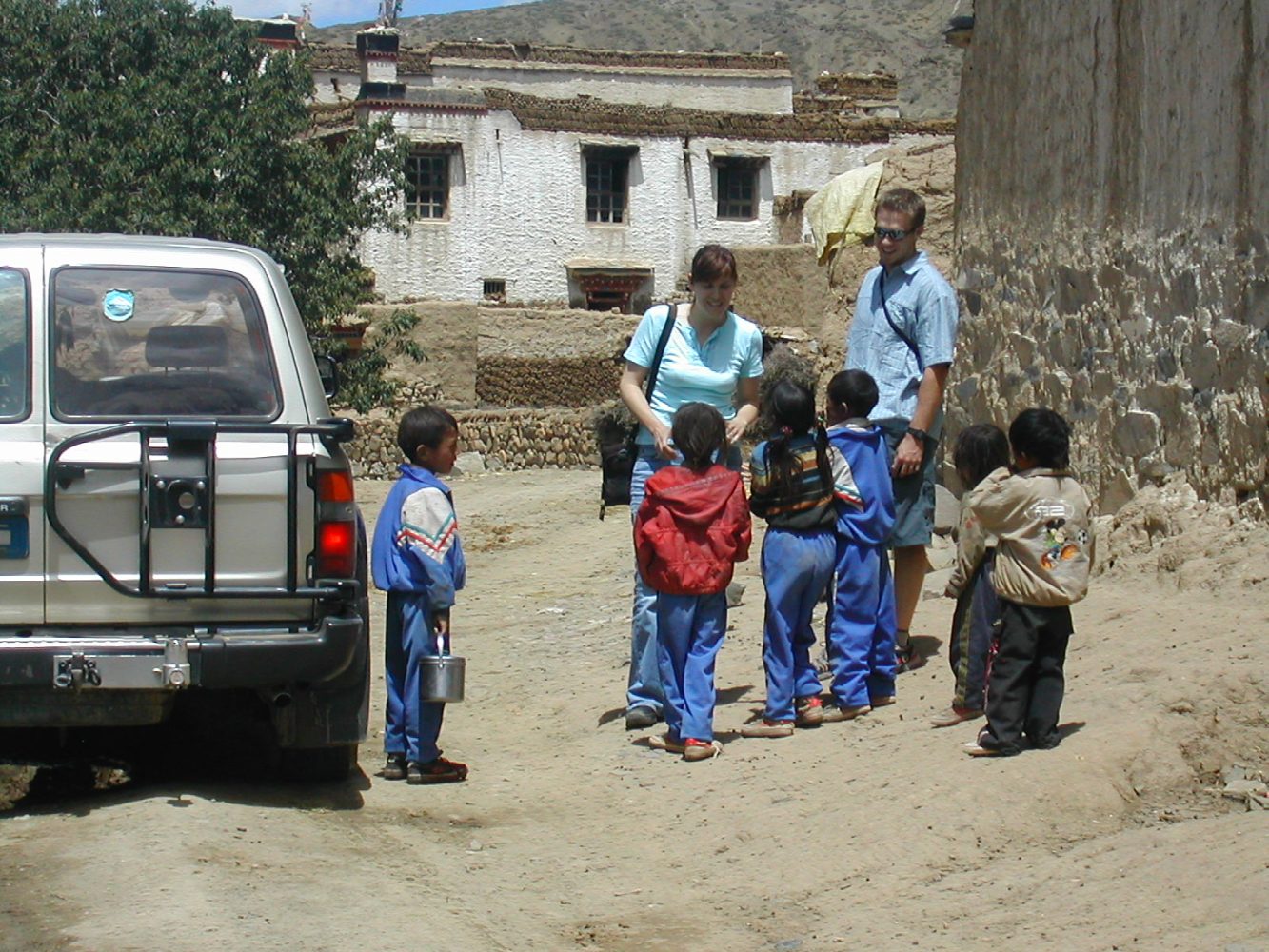
As we approached Gyantse proper, we paralleled two horse-drawn carts headed in the same direction. These rough and tumble wagons looked as if they weren’t just going to the festival but might be competing in it. We rolled down our windows and gave them the thumbs-up and sped up a bit. They whipped their horses, got into an aggressive crouch, and yelled, “Hoosh, hoosh.” They were flying down their dirt path and looking at us, half grinning, half concentrating. If these horsemen were any indication, I knew we were in for a treat at the festival.
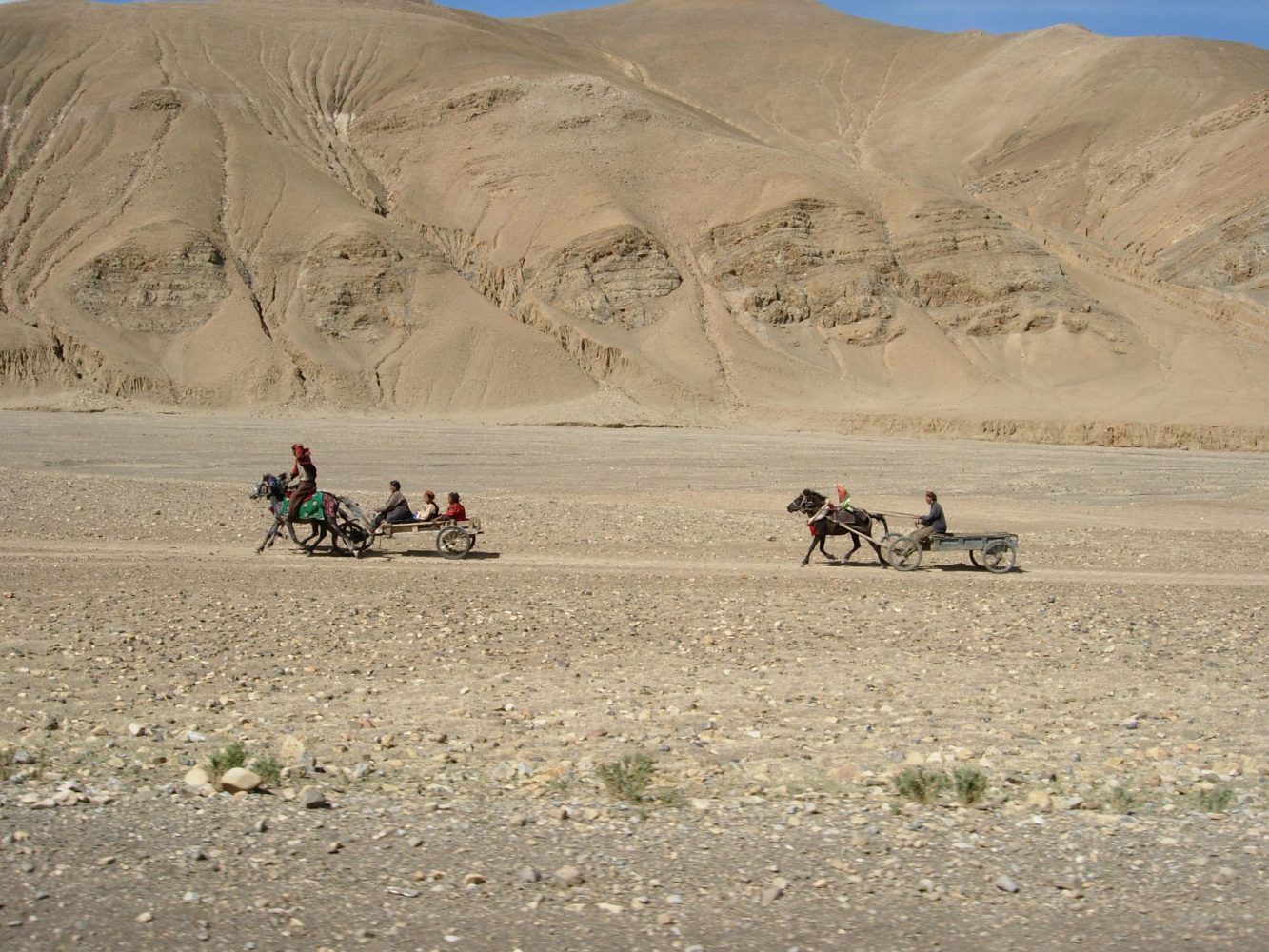
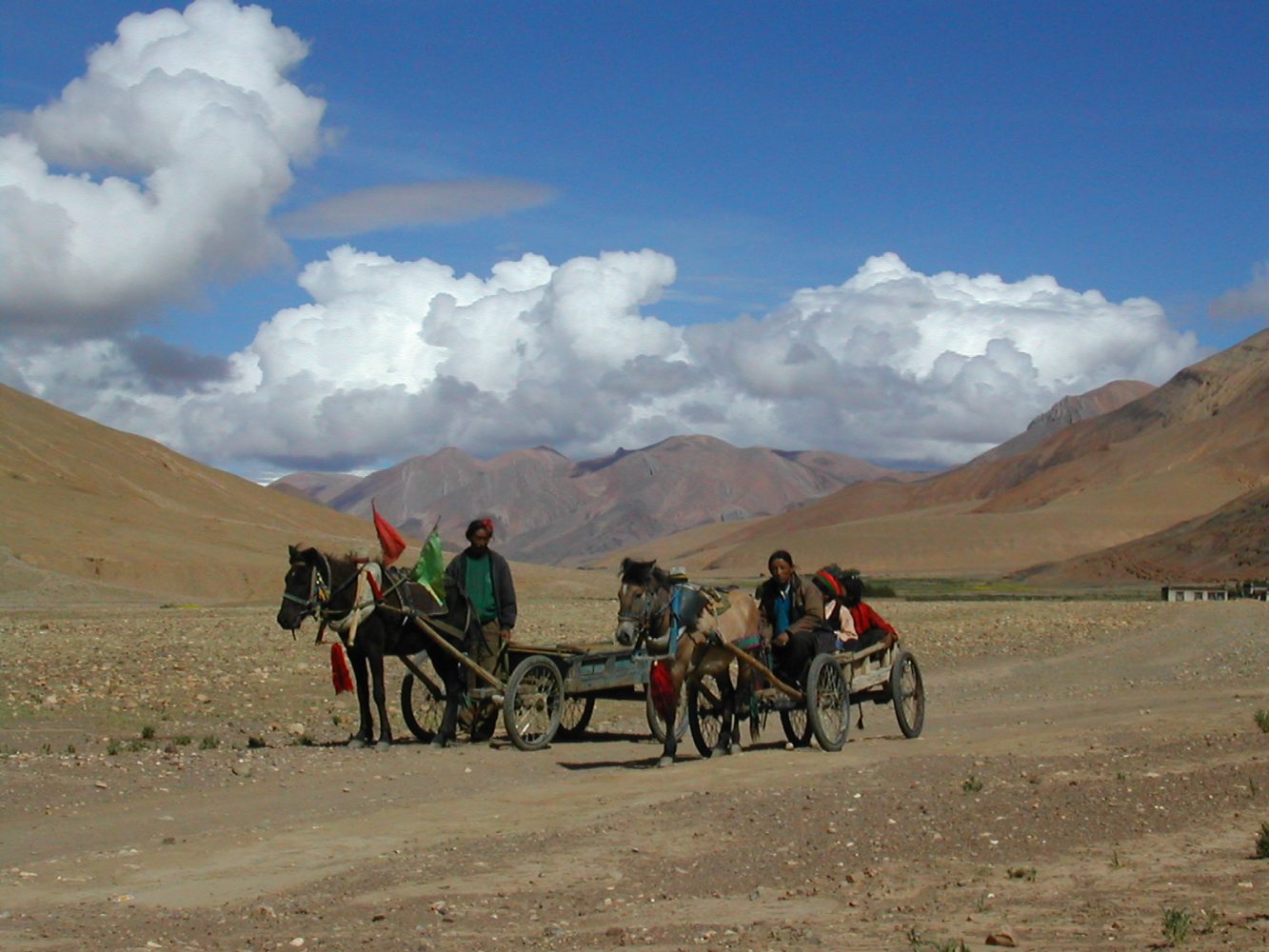
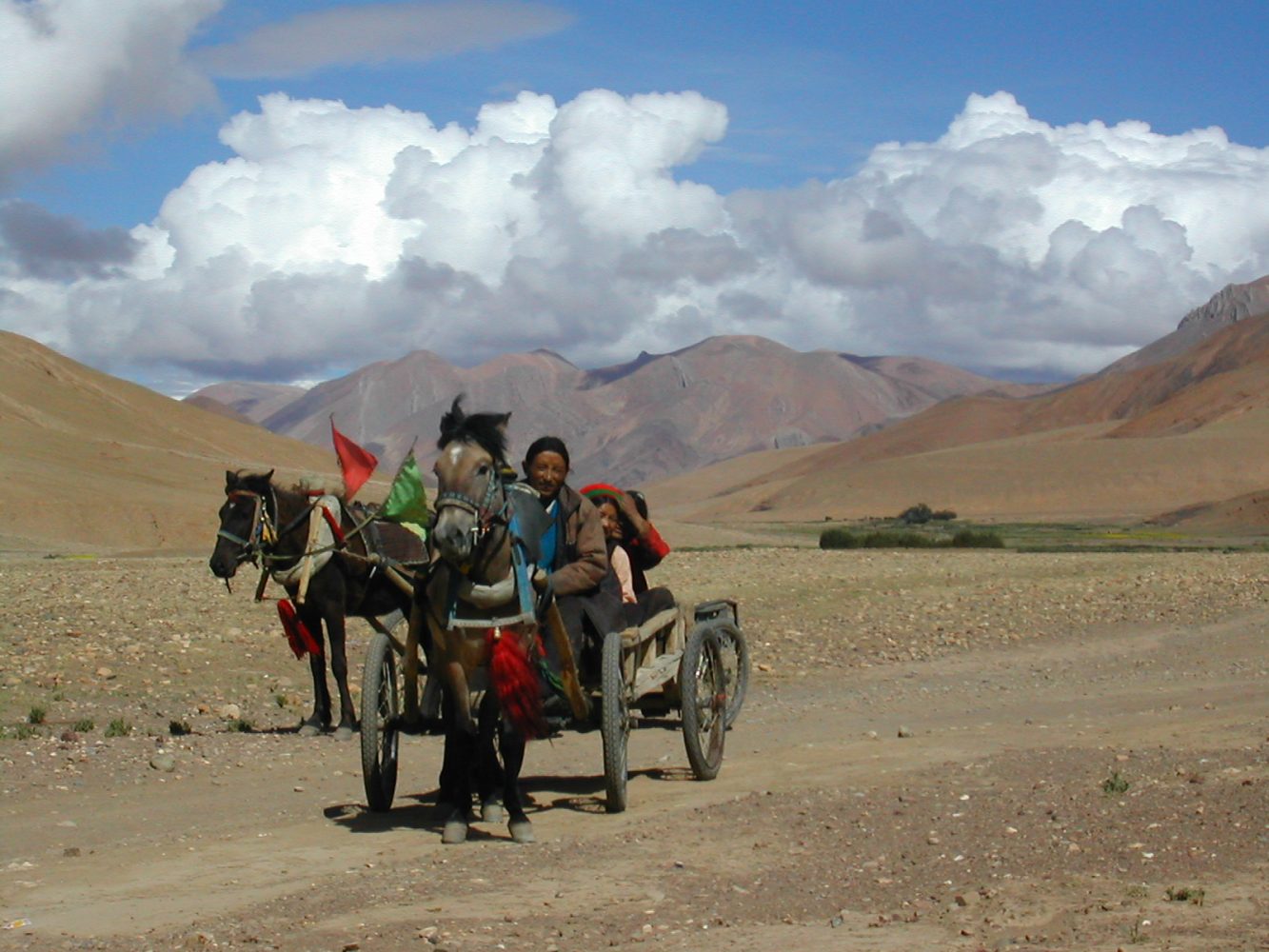
We parked many blocks away from the open valley where the festival was held. It wasn’t hard to figure out where to go since most living beings seemed to be flowing in the direction of the festival. The crowd was massive—an ocean of Tibetans of all types: horsemen, Buddhist monks, families, small children, groups of wild Tibetan cowboys, and young women in full regalia. The people-watching was out of this world exotic. The women wore traditional chuba dresses and were adorned with chunky necklaces of turquoise, carnelian, and silver. Young men, trying to display bravado, wore their traditional chuba coats with one arm in, one arm out. Letting one sleeve dangle while walking with a swagger lets people know you’re a tough guy.
After watching several rounds of horse races and dances, we decided to walk the festival’s perimeter. We were pleasantly surprised to find families and friends having picnics spread across the valley. They all appeared to have spared no expense when it came to snacks and drinks. Every family had a hodgepodge collection of thermoses, jugs, and containers, which we came to find out were filled with either yak butter tea or homemade chang (pronounced chong). Chang, an alcohol made from fermenting barley, is generally made in crude ways at home, with varying levels of alcohol percentage.
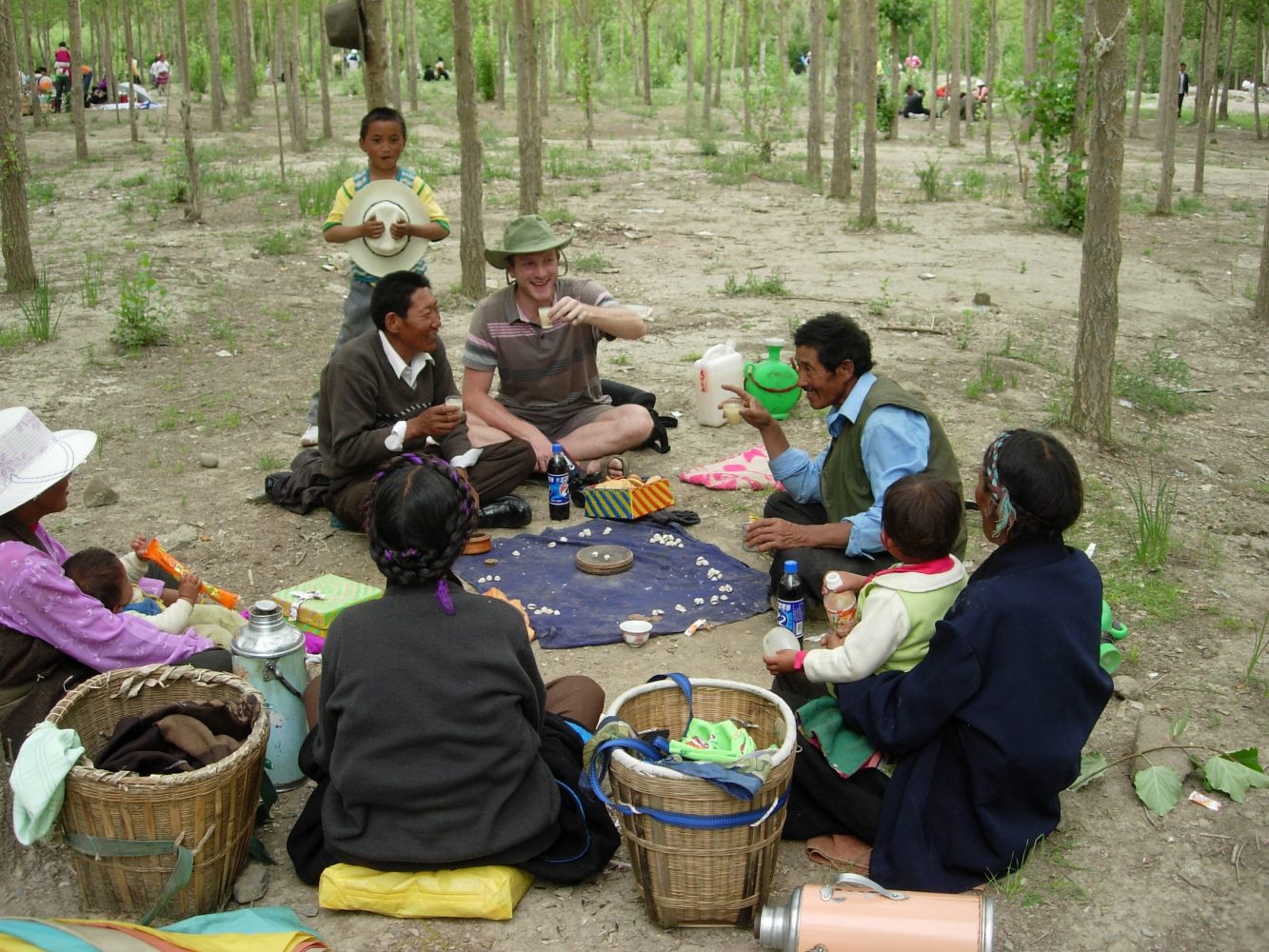
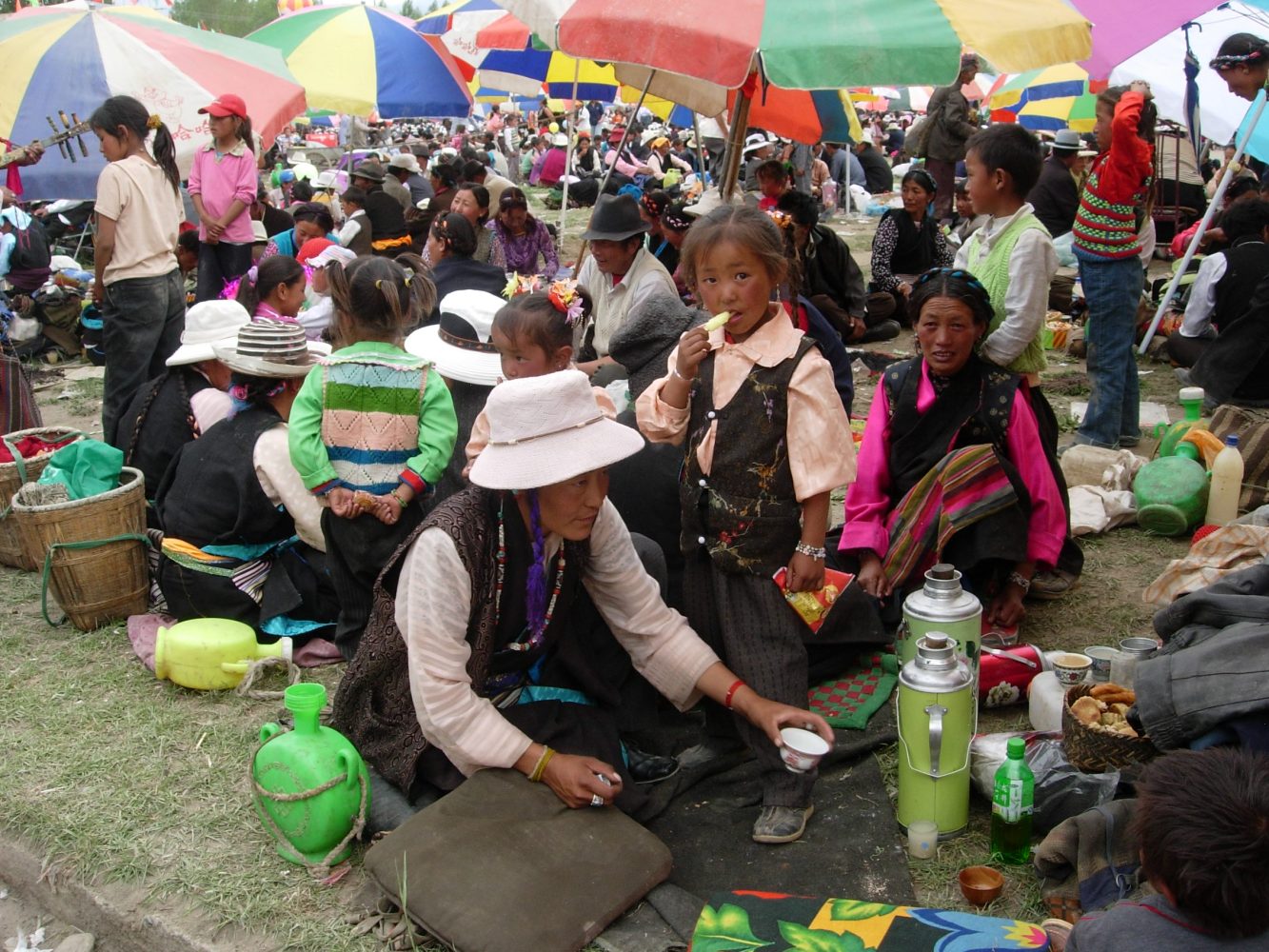
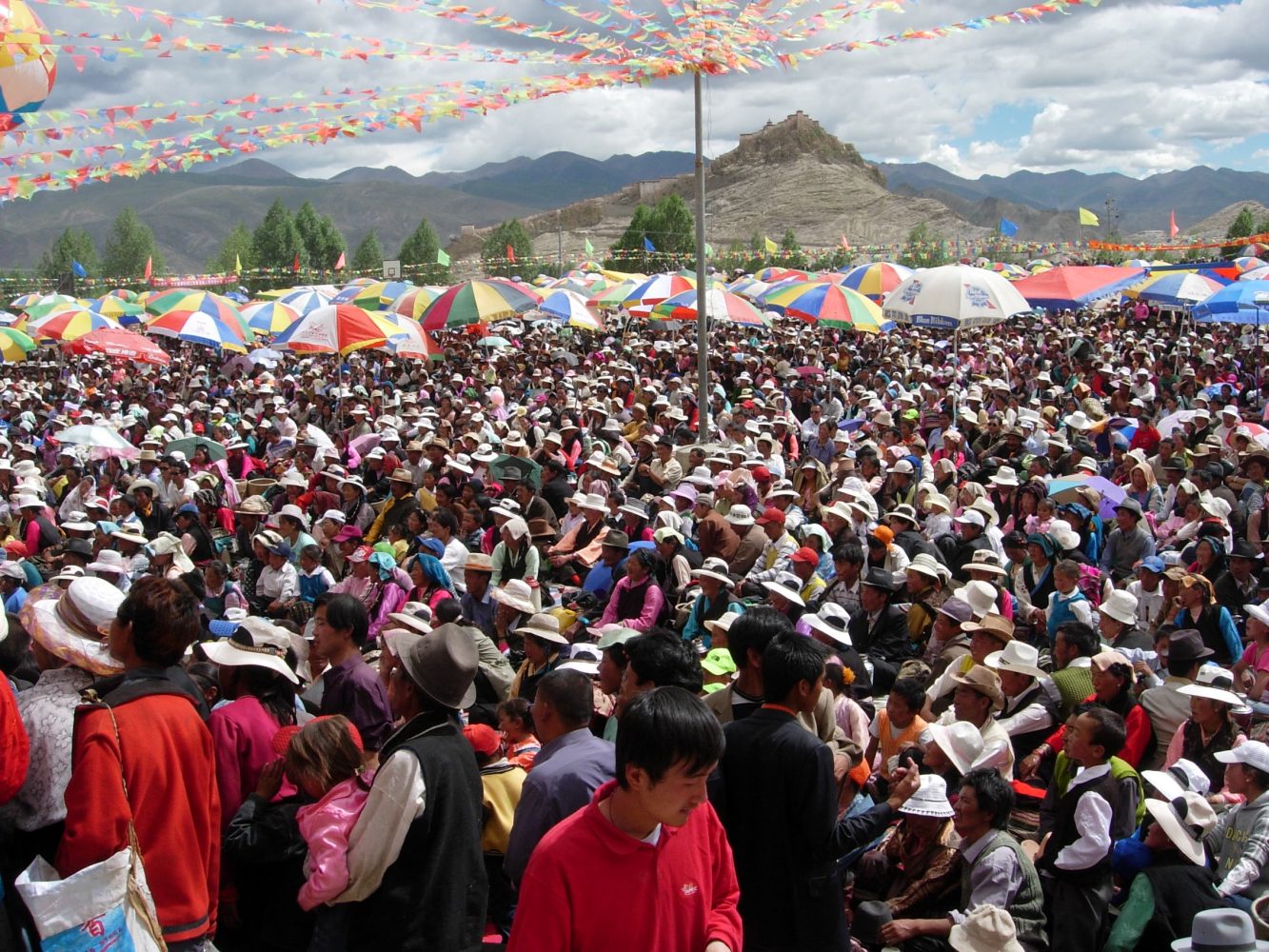
A couple of men waved to us, inviting us to sit with their family. We could tell they’d been knocking back the chang for a while. They poured us little glasses and raised their eyebrows as if to challenge us. How could we resist this invitation? I didn’t speak Tibetan nor did they speak English, but in a sad yet convenient way, we both spoke decent-enough Mandarin Chinese to have a dynamic conversation. We toasted to health, to family, to friends, to the horse festival, to everything. Since we were quickly depleting their chang supply, Aussie Scott brought some cold beers to the blanket. Simon, in a trademark move, presented and brewed some fine English black tea. The Tibetan family was delighted with this gesture.
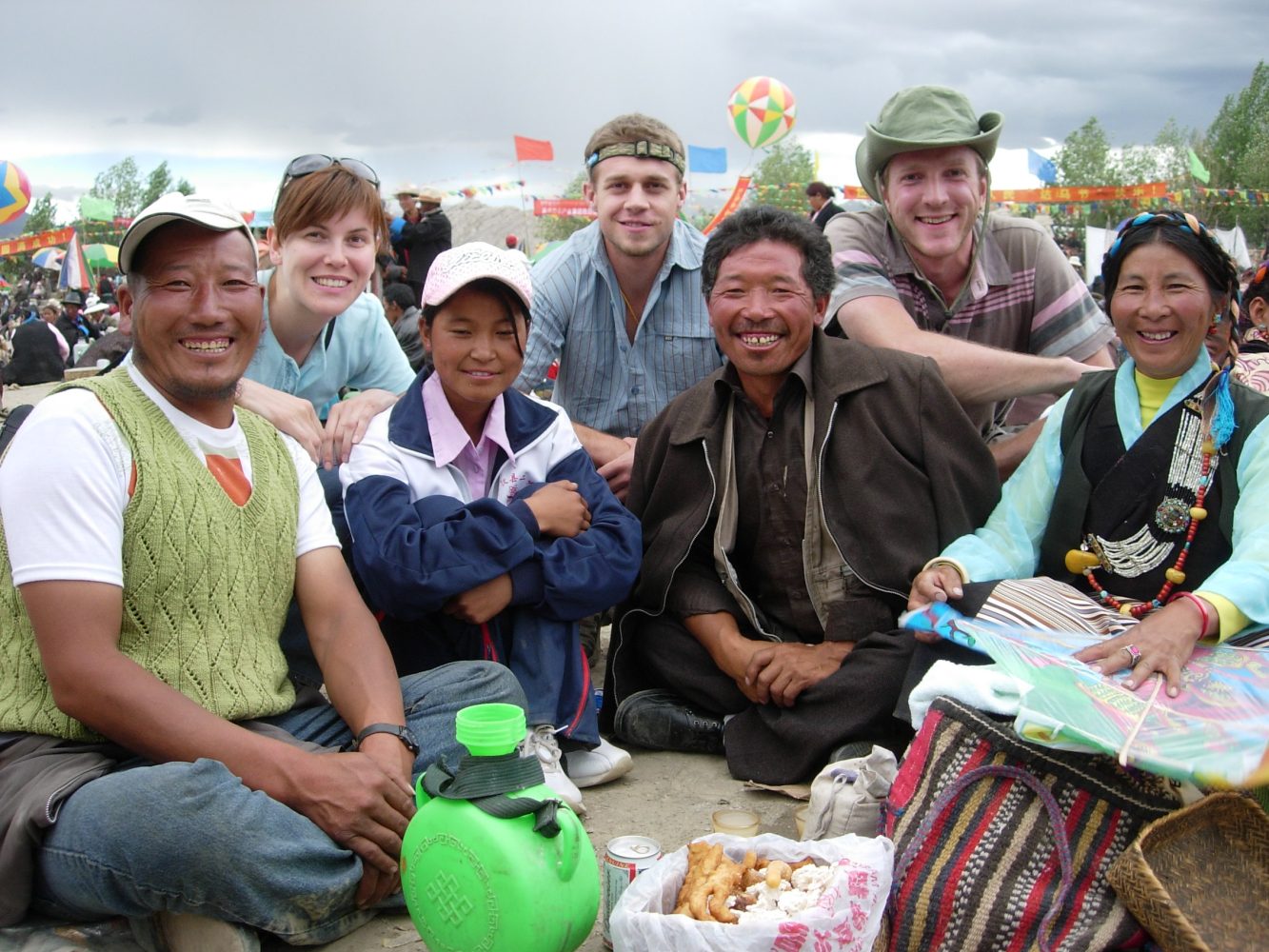
∙∙∙∙∙
A mountain overlooked Gyantse, and we figured a brisk hike to the summit would give us an incredible view of the valley and also break the changover (hangover from chang) from the previous day’s festival. It was a cool, crisp morning with wide-open blue skies—just like back home in Colorado. We hiked through neighborhoods made of stone, mud, and cinder blocks and eventually found a suitable trail to take us to the top of the peak. The summit was a stupa with carved mani stones and Tibetan prayer flags. This was a spiritual place. We looked down the valley, seeing thousands of Tibetan homes that make up the town of Gyantse. I shifted my gaze toward a secluded valley and saw vultures circling and diving on something. We narrowed our eyes to see what the scavengers were interested in.
There were two vehicles and about a dozen people standing around down below. Two men kneeled on the ground, holding tools, seemingly hard at work. Then it hit me; it all clicked. I had studied this. Known as a sky burial, the practice is not for the faint of heart. The men were chopping, chopping at a body; the onlookers must have been family. The sky burial is a sacred ritual in which the body is divided up and left exposed to the elements—essentially taken back by nature. The circle of life, the food chain, reincarnation, giving back to nature, releasing the spirit, a funeral—however we wanted to label it, it was not our place. It was clear they’d come to the secluded valley on purpose. I’d read that this practice was not allowed by the Chinese Communist Party and that Tibetans worked hard to both avoid the government and to avoid curious foreigners. Our mood quieted out of respect, each of us taking one last long look before descending away from their ceremony.
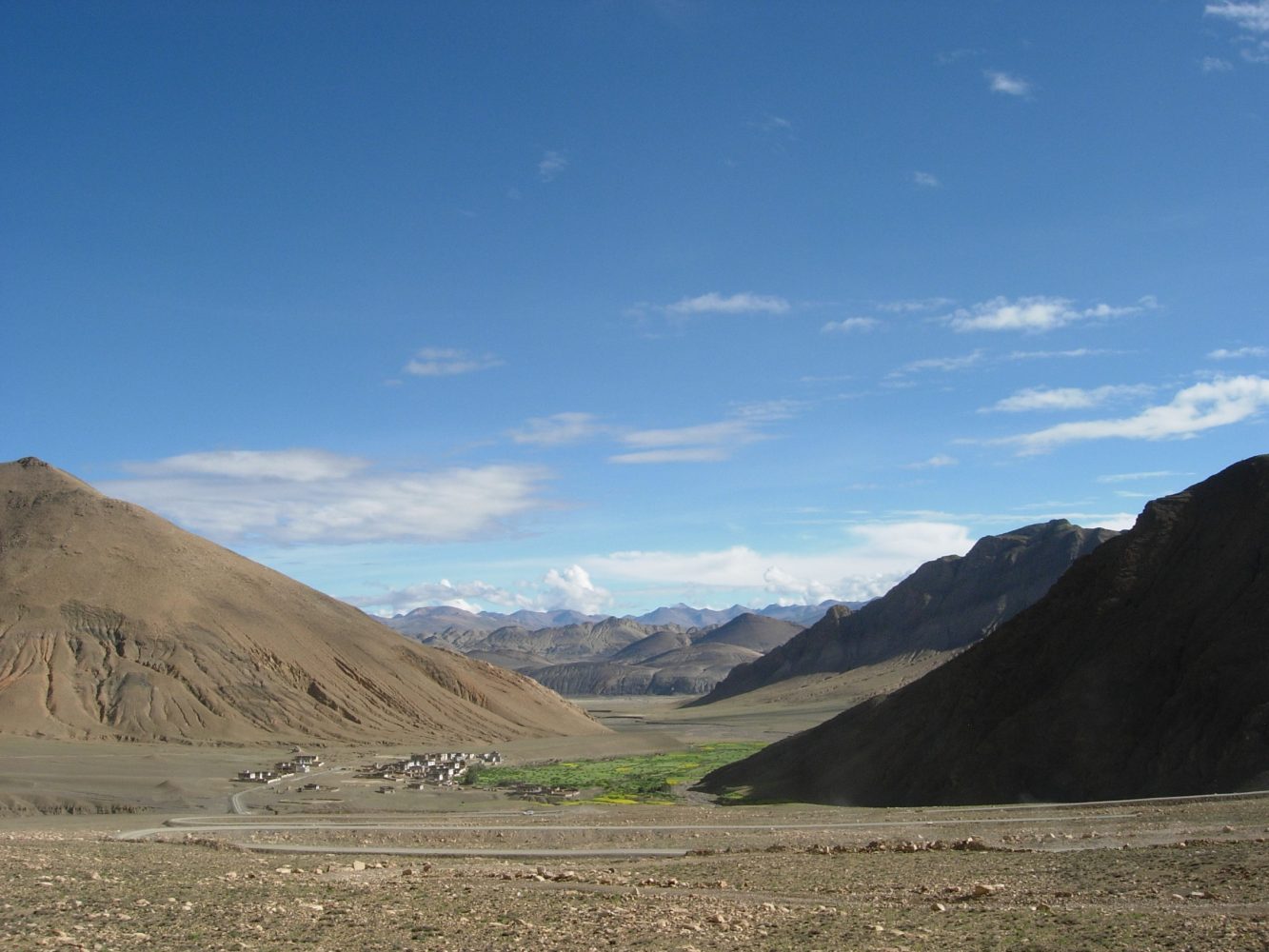

Later that afternoon, we left Gyantse and continued west toward Nepal. We had a lot to talk about during the next few days through Tibet: Lhatse, Rongbuk Monastery, Tingri, and the long straightaway across the high-elevation steppe. Traveling can blindside the unsuspecting traveler. One minute we were hanging out with Tibetan cowboys, toasting to barley wine, and the next minute we were uninvited witnesses to a sacred burial ceremony. Strange circumstances brought an Englishmen, an Aussie, an American, and a Slovenian into a Land Cruiser, barreling around Tibet. Some of the deepest, most insightful conversations with strangers-turned-friends are made possible by these rare yet shared experiences.
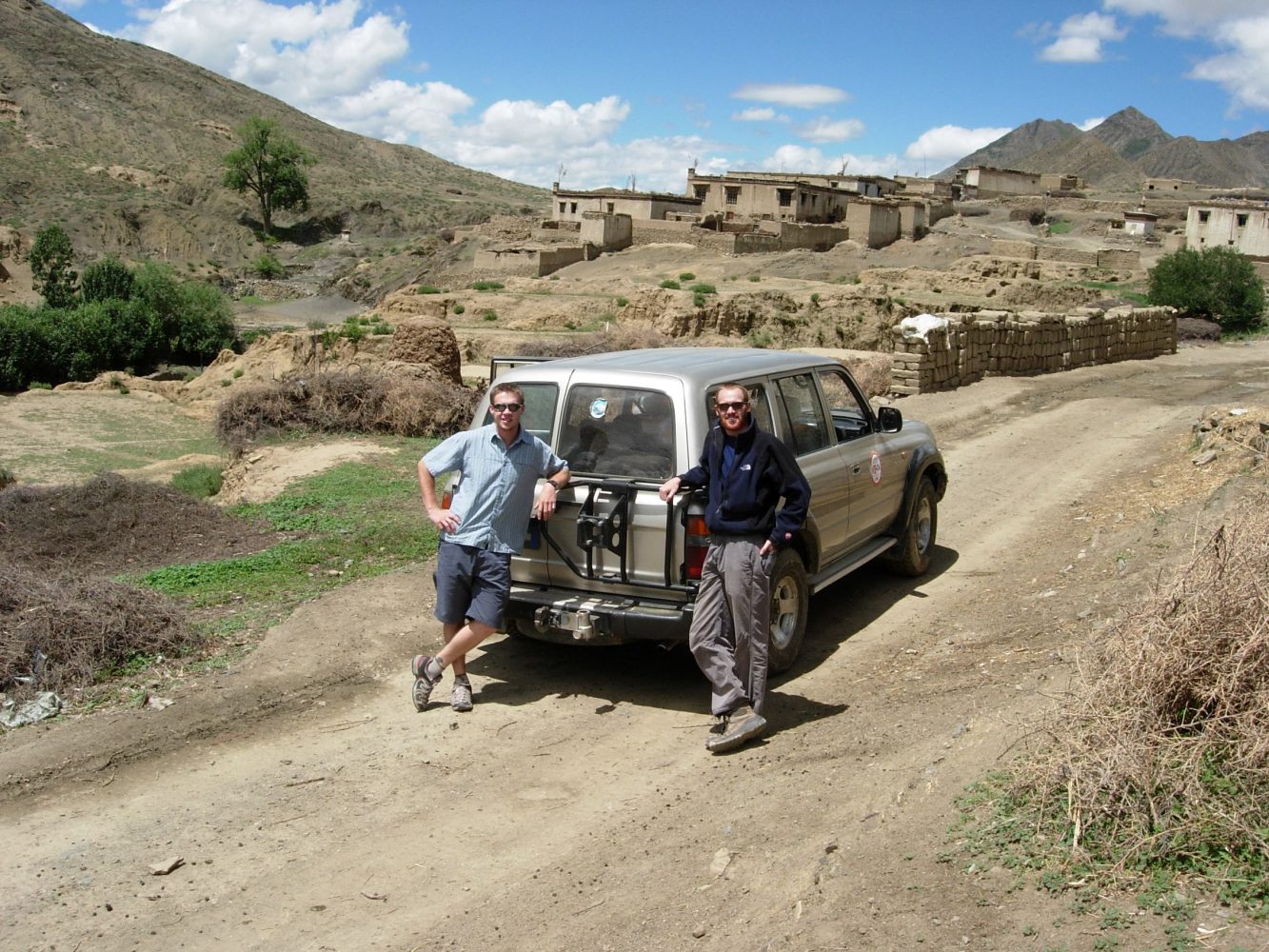
Our No Compromise Clause: We carefully screen all contributors to make sure they are independent and impartial. We never have and never will accept advertorial, and we do not allow advertising to influence our product or destination reviews.


